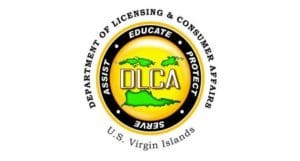
The Department of Licensing and Consumer Affairs (DLCA) urges consumers to be vigilant about scam texts and calls. According to the Federal Trade Commission, scammers use technology to make any name or number show up on your caller ID: the IRS, a business you know, or even a person’s own number. Do not trust caller ID because phone numbers can be faked. Scammers send text messages to trick the recipient into clicking links and giving personal information.
Example: You pick up the phone and hear a recorded message — a robocall — or a live person selling something. Maybe it’s not who your caller ID said it was. Or you get an unexpected text message saying you won a prize, have a package waiting or must contact your bank.
Recorded sales calls are illegal unless you give a business written permission to robocall you. If your number is on the Do Not Call Registry, you’re not supposed to get any recorded or live sales calls. But scammers ignore the rules about when and how they can call you.
Here’s what to do: Hang up on unwanted calls and ignore unexpected texts. Don’t press any numbers or click on links. Blocking services might reduce unwanted calls and texts. Ask your phone carrier about call and message blocking. Read expert reviews about your options. Learn more at www.ftc.gov/calls.
Pass this information on to a friend. You may know what to do about unwanted calls and texts, but you probably know someone who doesn’t.
DLCA encourages consumers to sign up for free scam alerts from the FTC at www.ftc.gov/ConsumerAlerts to get the latest tips and advice about scams sent right to your inbox.
You may also report a scam by contacting the Consumer Affairs Division at 713-3522 or 714-3522 or via email to consumerawareness@dlca.vi.gov.


